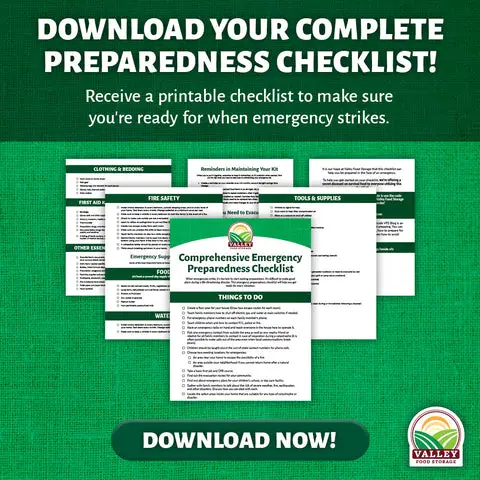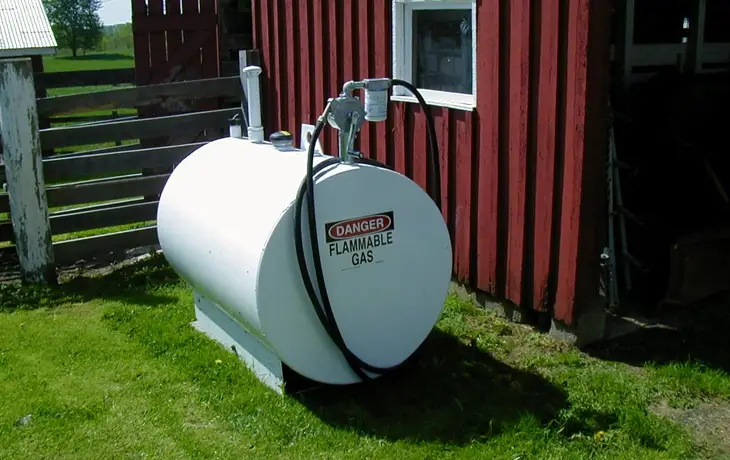Welcome to the ultimate guide on long-term fuel storage for emergencies! Whether you’re preparing for a natural disaster or simply want to ensure you have a reliable supply of fuel on hand, this article will provide you with all the information you need to safely and effectively store fuel for extended periods of time. From choosing the right storage containers to maintaining the quality of your fuel, we’ve got you covered. So sit back, relax, and let us help you feel confident and prepared for whatever comes your way. Have you ever wondered how you can safely store fuel for emergencies? We never know when a crisis might strike and having a plan for long-term fuel storage is essential. In this guide, we will cover everything you need to know about storing fuel for emergencies in a safe and effective manner. Whether you are preparing for a natural disaster or looking to store fuel for your generator, this guide will help you navigate the process with ease.
Importance of Long-Term Fuel Storage
Long-term fuel storage is crucial for emergencies as it ensures you have access to fuel when traditional sources may not be available. Whether it’s a power outage, natural disaster, or any other unforeseen situation, having a sufficient supply of fuel can make a significant difference in how you navigate through the emergency. By planning ahead and storing fuel properly, you can avoid the stress of scrambling for fuel when you need it the most.
Why You Should Prepare for Fuel Storage
When emergencies strike, fuel scarcity is a common issue that many people face. By preparing for fuel storage in advance, you can ensure that you have a reliable source of fuel to power your generator, vehicles, or other equipment. This can be particularly important in situations where access to fuel stations may be limited or unavailable. Additionally, storing fuel beforehand can save you time and money, as you won’t have to rush to buy fuel at inflated prices during emergencies.
Types of Fuel for Long-Term Storage
Not all types of fuel are suitable for long-term storage, and it’s essential to choose the right type of fuel that can be stored safely for an extended period. Here are some common types of fuel that are suitable for long-term storage:
Gasoline
Gasoline is one of the most commonly used fuels for emergencies, especially for powering vehicles and generators. When stored properly in airtight containers and kept in a cool, dry place away from direct sunlight, gasoline can be stored for up to 12 months. It is essential to rotate gasoline supplies regularly to ensure freshness and reliability.
Diesel
Diesel fuel is another popular choice for long-term storage, as it has a longer shelf life compared to gasoline. Diesel can be stored for up to 2 years when kept in airtight containers and stored in a cool, dry place. Regularly inspecting diesel fuel for any signs of contamination or degradation is crucial to maintain its quality over time.
Propane
Propane is a versatile fuel that is commonly used for cooking, heating, and powering appliances. Propane tanks can be safely stored for an extended period if kept in a well-ventilated area away from heat sources. It is important to check propane tanks for leaks and damage regularly to ensure safe storage and usage.
Kerosene
Kerosene is commonly used for lighting, heating, and cooking during emergencies. When stored in airtight containers and kept in a cool, dark place, kerosene can be stored for up to 2 years. It is important to use only clean and high-quality kerosene to prevent contamination and ensure reliable fuel supply.

Safe Fuel Storage Practices
Proper fuel storage is essential to ensure the longevity and safety of the fuel you have stored for emergencies. Here are some safe fuel storage practices to keep in mind:
Choosing the Right Containers
Selecting the right containers for fuel storage is crucial to prevent leaks, spills, and contamination. Use only approved containers that are specifically designed for storing fuel, such as metal or high-density polyethylene (HDPE) containers. Avoid using containers that are not designed for fuel storage, as they may degrade and compromise the integrity of the fuel.
Keeping Fuel in a Cool, Dry Place
Storing fuel in a cool, dry place away from direct sunlight is essential to prevent degradation and maintain freshness. Exposure to extreme temperatures can cause fuel to deteriorate quickly and lose its effectiveness. Consider storing fuel in a well-ventilated area to prevent the build-up of fumes and ensure safe storage.
Inspecting and Maintaining Fuel Supplies
Regularly inspecting and maintaining fuel supplies is essential to ensure the quality and reliability of the stored fuel. Check containers for any signs of leaks, damage, or contamination, and address any issues promptly. Rotate fuel supplies regularly to prevent the fuel from going bad and ensure you have a fresh and reliable source of fuel when needed.
Fuel Storage Duration
The duration for which fuel can be stored depends on the type of fuel and how it is stored. Here are some general guidelines for the storage duration of common types of fuel:
Gasoline: Up to 12 months
Gasoline can be stored for up to 12 months when kept in airtight containers and stored in a cool, dry place. It is essential to rotate gasoline supplies regularly to ensure freshness and reliability.
Diesel: Up to 2 years
Diesel fuel has a longer shelf life compared to gasoline and can be stored for up to 2 years when kept in airtight containers and stored in a cool, dry place. Regularly inspecting diesel fuel for any signs of contamination or degradation is crucial to maintain its quality.
Propane: Indefinitely
Propane can be stored indefinitely in properly maintained tanks that are kept in a well-ventilated area away from heat sources. Check propane tanks for leaks and damage regularly to ensure safe storage and usage.
Kerosene: Up to 2 years
Kerosene can be stored for up to 2 years when kept in airtight containers and stored in a cool, dark place. Use only clean and high-quality kerosene to prevent contamination and ensure reliable fuel supply.

Rotating Fuel Supplies
Rotating fuel supplies is a critical aspect of long-term fuel storage to ensure you have a fresh and reliable source of fuel when needed. Here are some tips for rotating fuel supplies effectively:
First In, First Out (FIFO) Method
Adopt the FIFO method when rotating fuel supplies, which means using the oldest fuel first before moving on to newer supplies. This helps prevent fuel from going bad and ensures you always have a fresh source of fuel on hand.
Regular Inspection and Testing
Regularly inspecting and testing stored fuel supplies is essential to identify any signs of contamination, degradation, or issues that may affect the quality of the fuel. Conduct tests such as visual inspection, odor check, and fuel quality testing to ensure the reliability of the stored fuel.
Proper Labeling and Documentation
Properly labeling fuel containers with the date of purchase and type of fuel can help you keep track of when the fuel was stored and when it needs to be rotated. Maintain detailed documentation of your fuel storage practices to ensure you are effectively rotating fuel supplies and addressing any issues promptly.
Safety Precautions for Fuel Storage
Safety is paramount when it comes to storing fuel for emergencies, and taking the necessary precautions can help prevent accidents and ensure a safe storage environment. Here are some safety precautions to keep in mind:
Avoid Storing Fuel Indoors
Never store fuel indoors, as it can pose a significant fire hazard and expose you to toxic fumes. Always store fuel in a well-ventilated outdoor area away from heat sources, open flames, and electrical equipment to minimize the risk of accidents.
Handle Fuel with Care
When handling fuel, exercise caution and follow proper safety protocols to prevent spills, leaks, and accidents. Use appropriate safety gear such as gloves, goggles, and a mask to protect yourself from exposure to fumes and potential hazards.
Store Fuel Away from Children and Pets
Keep fuel storage containers out of reach of children and pets to prevent accidental ingestion or exposure. Ensure that fuel containers are securely sealed and stored in a designated area that is inaccessible to curious hands or paws.

Conclusion
Preparing for fuel storage for emergencies is a proactive step that can help you navigate through crises with ease and peace of mind. By following the guidelines outlined in this guide, you can safely store fuel for long-term use and ensure you have a reliable source of fuel when traditional sources may not be available. Remember to choose the right type of fuel, store it properly, rotate fuel supplies regularly, and take necessary safety precautions to maintain a safe and effective fuel storage system. With proper planning and preparation, you can rest assured knowing that you are well-equipped to handle emergencies that may arise.
